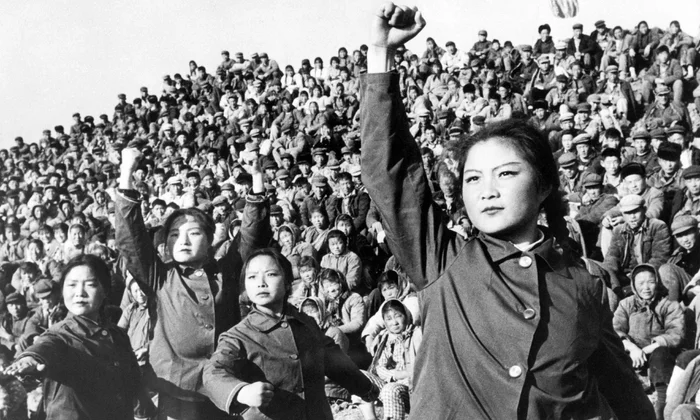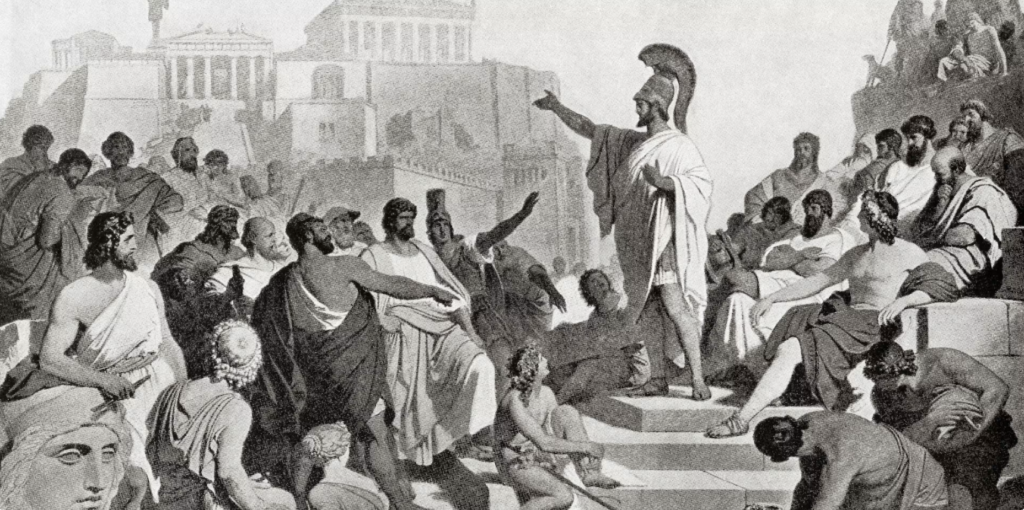

This year I took two classes in the political science sphere: Narrating China (20th and 21st century Chinese literature) and Democracy and its Discontents (ancient Athens). These courses better informed me about the roles people, power, and tyranny play in distinct political spheres. I also became aware of how my own thinking changed with regard to the role of the individual amongst the social & political situation at large. I saw more clearly how the world tangibly shows up within social and political communities in certain historical eras. For example, in the Narrating China course, the fall of the Qing dynasty in 1912 opened up space for wholesale revolution and a reimagination of many aspects of life. The literature exposed me to how individual actors were responding and forming ideas and taking up new ways of life. Some may have been more radical – the young whipper-snapper Red Guards, carrying out Mao’s agenda with glee and force, or conservative, placing emphasis on daily life in Yu Hua’s novel To Live, or via a spiritual and natural way of life, such as Knotty Xiao’s environmental attitude in “The King of Trees.” And many others were ambivalent or “everyday” characters not trying too hard to enact drastic change, but to just live. I realized my own interest and engagement with philosophy and religion had likewise been stemming from someplace. I think much of this had to do with my high school experience and COVID, which also took a toll on everyone. I was able to see much more humanity in these historical situations and apply that understanding of humanity towards my own life.
The Athenian democracy course was enlightening in showing how democratic forms of governance change over time, and how they are in close tension with oligarchy, tyranny, and war. In Athens, the majority poor masses successively demanded and gained political power. Leaders like Pericles and Cleon rose to become voices of the people, speaking and responding to them, but also gaining personal power. This led to fluctuating periods of tyranny and oligarchic rule. Similar to the Narrating China course, and even as far back as the classical Chinese lab, I became more acclimated to the idea that disorder and disunity in politics and society is not an unsurprising phenomenon. It is a part of our character, but there are better parts of us as well. And I think this further clarified to me the role of the individual to speak out and live that way of life that best corresponds to a more balanced, humane, and compassionate world.
Photo Citations:
Universal History Archive / Contributor. Chinese Red Guards During the Cultural Revolution in China, 1966. Universal Images Group via Getty Images. https://www.gettyimages.com/detail/news-photo/chinese-red-guards-during-the-cultural-revolution-in-china-news-photo/566465159.
Universal History Archive / Contributor. Athens Under the Leadership of Pericles (Pericles, c. 495–429 BC). Universal Images Group via Getty Images, February 6, 2018. https://www.gettyimages.com/detail/news-photo/athens-under-the-leadership-of-pericles-pericles-c-495-429-news-photo/1036124758.

Leave a Reply